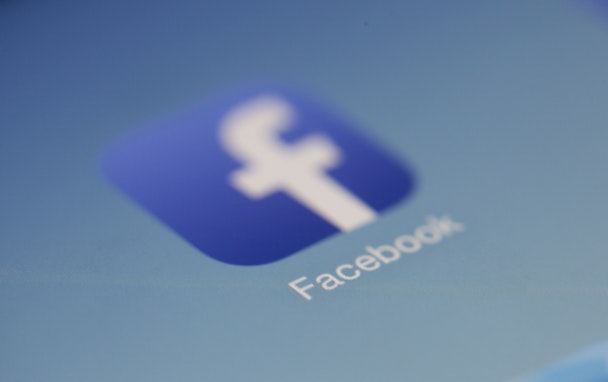Facebook should feel ad boycott pain in wallet, not influencers
The Facebook boycott needs to be focused on the financial pressure caused by halting ad dollars, not the potentially devastating effects of pausing influencer content, says Sway Group chief executive officer Danielle Wiley

Honda. Unilever. Coca-Cola. Eddie Bauer. Hershey’s. Verizon. These are just some of the growing list of blue chip corporations that have paused their advertising on Facebook and Instagram as part of the #StopHateForProfit campaign. The campaign asks participants to “stand in solidarity with our most deeply held American values” by not advertising Facebook's this month, in order to persuade Facebook into increasing efforts to stop the spread of racist, violent and verifiably false content.
By stopping advertising, brands are sending a powerful message to the social media giant. Ad sales are the primary source of Facebook's revenue. For example, Verizon alone spent nearly $1.5 million on Facebook and over $400,000 on Instagram between May 22-June 20.
At our influencer marketing agency, we are in full support of this movement. We absolutely agree with the campaign statement that profits will never be worth promoting hate, bigotry, racism, antisemitism and violence.
However, the boycott needs to be focused on the financial pressure caused by halting advertising dollars — rather than the potentially devastating effects of putting influencer content programs on pause.
Influencers aren’t the enemy
As the advertiser boycott gains momentum, brands need to remember that the platform is the target, rather than its users and participants.
While users can obviously choose to join the boycott to send a message about Facebook’s need to better police hate speech and disinformation, influencers are small business owners, many of whom have taken tremendous losses this year from Covid-19. The ad boycott should be felt by Facebook itself, not the influencers who rely on Facebook and Instagram to reach their audiences.
Eliminating sponsored posts from Facebook and Instagram hurts influencers, rather than making any kind of dent in the $69.7 billion in ad revenue Facebook made last year through its millions of advertisers. Influencers have already had to adjust to limited views with paid boosting on hold from brand partners; losing campaigns altogether could be devastating for many.
The challenge to earn a paycheck
Over the years, influencers have been jumping through hoops in order to keep up with shifting monetization opportunities from Facebook and Instagram, from staying current with complicated feed algorithm changes to achieving the 10k follower minimum for Instagram’s Swipe Up feature.
Ever-changing terms and conditions have affected influencers as well, with influencers held to a much more stringent disclosure requirement from the Federal Trade Commission than brands who participate in product placement activities. (When was the last time you saw a “this is an ad” announcement in a movie scene with a prominently-featured soda or vehicle brand?)
As a whole, influencers already face an uphill battle with earning fair compensation for their ability to engage targeted audiences on brands’ behalf. While some extremely high-profile influencers have been criticized (fairly, in our opinion) for their exorbitant per-post fees, the vast majority of content creators charge a fair price for their professional services.
For influencers whose livelihood centers around their ability to connect with other social platform users, losing sponsorships unfairly puts them in the crosshairs of a fight they never started in the first place.
Platform sponsorships are different from ads
Because platform engagement fluctuates widely, one of the best ways to ensure content gets seen is to invest in paid amplification. Paid options such as Facebook and Instagram ads not only increase visibility, they offer deep-dive targeting and reporting.
Paid social media boosting helps brands get more from their influencer marketing investment: their message is shaped and shared by influencers who are both trusted sources and experts in content creation — and ultimately exposed to an even larger, more targeted audience.
While paid advertising can be part of an overall campaign, it’s not the same as sponsoring an influencer’s content. Advertising fees are paid to the platforms, while sponsoring influencer content compensates the creator for their content creation and distribution services, either directly or through the broader services of an influencer marketing agency.
Influencer marketing works because it doesn’t feel like an ad: when done correctly, sponsored influencer content feels like a natural extension of their usual topic and tone. Companies can continue in their efforts to send Facebook a strong message that it’s time to clean house on hate speech and disinformation — without punishing influencers for their ability to reach specific demographics with branded content that resonates.
The message that matters
Ultimately, Facebook needs to hear that the businesses who make their ad revenue possible are calling for change. While users have been speaking up for years about the spread of misinformation and hate speech, advertisers are the ones who likely have the best chance at driving policy change by affecting Facebook’s bottom line.
Not that Facebook is rolling over quite yet. As Carolyn Everson, vice president of Facebook’s global business group told The Wall Street Journal: “We do not make policy changes tied to revenue pressure. We set our policies based on principles rather than business interests.”
While it remains to be seen what will happen as a result of this growing brand movement, we are encouraged by the corporate actions we’re seeing. We hope Facebook will listen to what companies are telling them and put in stronger and more transparent efforts to make their social platforms a healthier environment for the millions who use them.
Danielle Wiley is chief executive officer of influencer marketing agency Sway Group.
